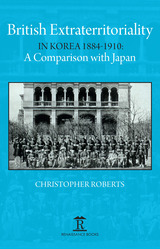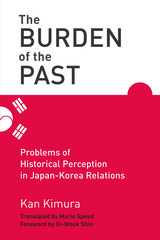6 start with B start with B

From the mid-seventeenth to the mid-nineteenth century, millions of Korean men from all walks of life trained in the arts of war to prepare not for actual combat but to sit for the state military examination (mukwa). Despite this widespread interest, only for a small minority did passing the test lead to appointment as a military official. Why, then, did so many men aspire to the mukwa?
Eugene Y. Park argues that the mukwa was not only the state's primary instrument for recruiting aristocrats as new members to the military bureaucracy but also a means by which the ruling elite of Seoul could partially satisfy the status aspirations of marginalized regional elites, secondary status groups, commoners, and manumitted slaves. Unlike the civil examination (munkwa), however, that assured successful examinees posts in the prestigious central bureaucracy, achievement in the mukwa did not enable them to gain political power or membership in the existing aristocracy.
A wealth of empirical data and primary sources drives Park's study: a database of more than 32,000 military examination graduates; a range of new and underutilized documents such as court records, household registers, local gazetteers, private memoirs, examination rosters, and genealogies; and products of popular culture, such as p'ansori storytelling and vernacular fiction. Drawing on this extensive evidence, Park provides a comprehensive sociopolitical history of the mukwa system in late Choson Korea.

The social structure of contemporary Korea contains strong echoes of the hierarchical principles and patterns governing stratification in the Chosŏn dynasty (1392–1910): namely, birth and one’s position in the bureaucracy. At the beginning of Korea’s modern era, the bureaucracy continued to exert great influence, but developments undermined, instead of reinforced, aristocratic dominance. Furthermore, these changes elevated the secondary status groups of the Chosŏn dynasty, those who had belonged to hereditary, endogamous tiers of government and society between the aristocracy and the commoners: specialists in foreign languages, law, medicine, and accounting; the clerks who ran local administrative districts; the children and descendants of concubines; the local elites of the northern provinces; and military officials. These groups had languished in subordinate positions in both the bureaucratic and social hierarchies for hundreds of years under an ethos and organization that, based predominantly on family lineage, consigned them to a permanent place below the Chosŏn aristocracy.
As the author shows, the political disruptions of the late nineteenth and early twentieth centuries, however, rewarded talent instead of birth. In turn, these groups’ newfound standing as part of the governing elite allowed them to break into, and often dominate, the cultural, literary, and artistic spheres as well as politics, education, and business.


Between 1876 and 1945, thousands of Japanese civilians—merchants, traders, prostitutes, journalists, teachers, and adventurers—left their homeland for a new life on the Korean peninsula. Although most migrants were guided primarily by personal profit and only secondarily by national interest, their mundane lives and the state’s ambitions were inextricably entwined in the rise of imperial Japan. Despite having formed one of the largest colonial communities in the twentieth century, these settlers and their empire-building activities have all but vanished from the public memory of Japan’s presence in Korea.
Drawing on previously unused materials in multi-language archives, Jun Uchida looks behind the official organs of state and military control to focus on the obscured history of these settlers, especially the first generation of “pioneers” between the 1910s and 1930s who actively mediated the colonial management of Korea as its grassroots movers and shakers. By uncovering the downplayed but dynamic role played by settler leaders who operated among multiple parties—between the settler community and the Government-General, between Japanese colonizer and Korean colonized, between colony and metropole—this study examines how these “brokers of empire” advanced their commercial and political interests while contributing to the expansionist project of imperial Japan.

Utilizing Japanese and South Korean newspaper databases to review discussion of the two countries’ disputed historical perceptions from the end of World War II to the present, The Burden of the Past provides readers with the historical framework and the major players involved, offering much-needed clarity on such polarizing issues. By seeing behind the public discourse and political rhetoric, this book offers a firmer footing for a discussion and the steps toward resolution.

READERS
Browse our collection.
PUBLISHERS
See BiblioVault's publisher services.
STUDENT SERVICES
Files for college accessibility offices.
UChicago Accessibility Resources
home | accessibility | search | about | contact us
BiblioVault ® 2001 - 2024
The University of Chicago Press









